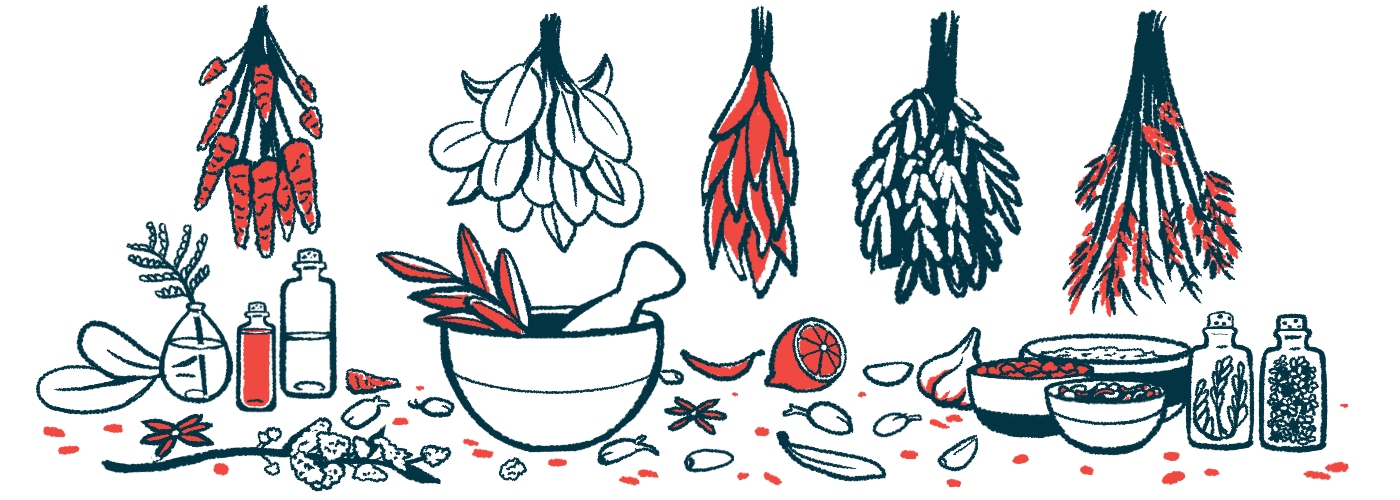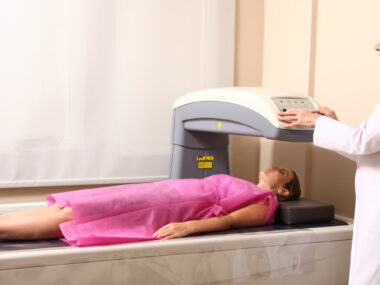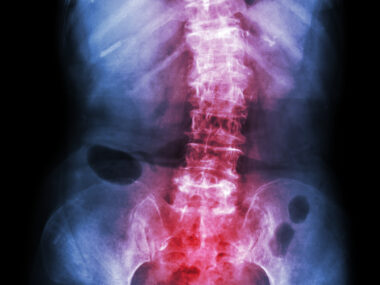Traditional Chinese medicine for AS may help ease pain, boost mobility
With modern medicine, Duhuo Jisheng decoction found to be 'effective and safe'
Written by |

When combined with modern evidence-based medicine, treatment with the traditional Chinese herbal medicine Duhuo Jisheng decoction may help relieve pain and improve mobility in people with ankylosing spondylitis (AS), according to an analysis of clinical trial data.
“Current evidence suggests that [Duhuo Jisheng decoction] combined with Western medicine is effective and safe for treating AS, especially in alleviating clinical symptoms,” researchers wrote.
However, the currently available evidence is fairly low quality, so more robust research is needed to evaluate how this traditional therapy might be used in AS treatment, researchers noted.
The study, “Efficacy and safety of Duhuo Jisheng decoction combined with Western medicine in the treatment of ankylosing spondylitis: A systematic review and meta-analysis,” was published in Complementary Therapies in Clinical Practice.
Duhuo Jisheng decoction is made from more than a dozen herbs
Duhuo Jisheng decoction, or DJD, is a preparation made from more than a dozen herbs that has been used for centuries in traditional Chinese medicine. In traditional practice, DJD is often prescribed to help relieve symptoms of AS and other disorders that cause inflammation and pain in the joints.
Nowadays, it may be given alongside modern treatments used in Western medicine.
However, “whether DJD combined with Western medicine can improve clinical symptoms and is safer than Western medicine alone in treating AS is still a matter of debate,” the researchers wrote. Therefore, they conducted a meta-analysis to assess whether adding DJD to modern treatment can help ease AS symptoms.
A meta-analysis is a type of study where researchers pool data from multiple previous studies together and analyze it collectively. As there is more data available in this type of research, a meta-analysis provides more statistical power to detect meaningful results than individual studies.
Current evidence suggests that [Duhuo Jisheng decoction] combined with Western medicine is effective and safe for treating AS, especially in alleviating clinical symptoms.
All trials included in meta-analysis were conducted in Asia
The analysis included data from 13 clinical trials, all of which compared DJD plus Western medicine to Western medicine alone in the treatment of ankylosing spondylitis. All of the trials were conducted in Asia. Specific Western medical treatments included methotrexate, sulfasalazine, and non-steroidal anti-inflammatory drugs (which includes medicines like ibuprofen).
The scientists noted that many of the studies were low quality, noting methodological flaws. In particular, studies generally did not have blinding procedures — meaning participants knew whether or not they were getting DJD, which introduces a high risk of bias and the placebo effect. Studies also tended to be small and have short follow-up times.
“Owing to the low-quality evidence of the included research, additional large-sample, high-quality, and long-term follow-up [clinical trials] are necessary,” the researchers wrote, noting that their meta-analysis is inherently limited by the low quality of the data that is currently available.
The researchers conducted separate analyses for different outcomes based on the data available.
Data from five of the trials, covering 371 patients, indicated that AS patients given DJD reported, on average, significantly better spinal/thoracic mobility. Analyses of morning stiffness time, based on data from 349 patients in five trials, also showed significantly better scores among patients given DJD — meaning they had a shorter morning stiffness time.
Patients given DJD tended to report significantly less severe pain
Six trials assessed patient-reported pain scores, and four studies measured AS symptom severity based on the Bath ankylosing spondylitis disease activity index (BASDAI). Patients given DJD tended to report significantly less severe pain (namely spinal pain and peripheral joint pain), as well as lower BASDAI scores, suggesting less severe symptoms.
Levels of inflammatory markers, specifically C-reactive protein and erythrocyte sedimentation rate, were significantly lower in patients given DJD based on the available data.
“The results indicated that DJD combined with Western medicine was superior to Western medicine alone in improving clinical symptoms and reducing the level of inflammation in patients with AS,” the researchers wrote.
Seven of the trials including 541 patients reported adverse event rates. An adverse event includes any kind of safety-related issue that happens during a trial, including treatment side effects and new health problems. Results of the meta-analysis showed the rate of adverse events was significantly lower among patients given DJD.
“More than half of the trials investigated adverse effects, and the results indicated a decreased incidence of adverse effects when DJD combined with Western medicine was used,” the researchers concluded.
Overall, the results suggest that patients on DJD tend to experience better outcomes than those given Western medicine alone — but the scientists stressed the need for more and higher-quality research before definitive conclusions can be drawn.







